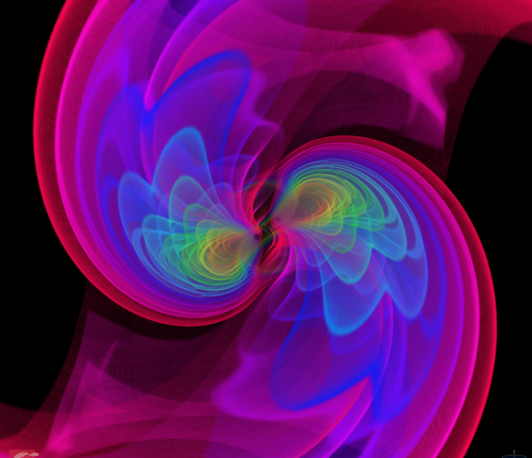Public talk (in German) “Gravitationswellen und kompakte Objekte: Einsteins kosmisches Orchester“
Public talk
- Date: Feb 7, 2024
- Time: 06:00 PM - 07:30 PM (Local Time Germany)
- Speaker: Sebastian Völkel
- Location: Urania-Planetarium, Gutenbergstr. 71 - 72, 14467 Potsdam
- Host: Urania-Planetarium Potsdam
- Contact: planetarium@urania-potsdam.de

Gravitational waves are a fundamental prediction of Albert Einstein's theory of general relativity. They have been repeatedly measured in recent years and played a central role in the 2017 Nobel Prize in Physics. Compact objects are black holes and neutron stars. Both types of objects bend space-time in their immediate vicinity. If two of them are in a binary system, they generate gravitational waves. Such a binary system is not stable for long periods of time and the two objects merge. The energy converted in the process is extreme and can be measured by today's detectors. The measured gravitational waves have characteristic properties and allow conclusions to be drawn about the merging objects. Similar to an orchestra, in which different instruments can be distinguished by their sound, it is possible to examine compact objects in more detail. Gravitational waves allow us to study the universe in a completely new way, as we can now also hear it. Some of the big questions of modern physics and astronomy may be answered in the future.